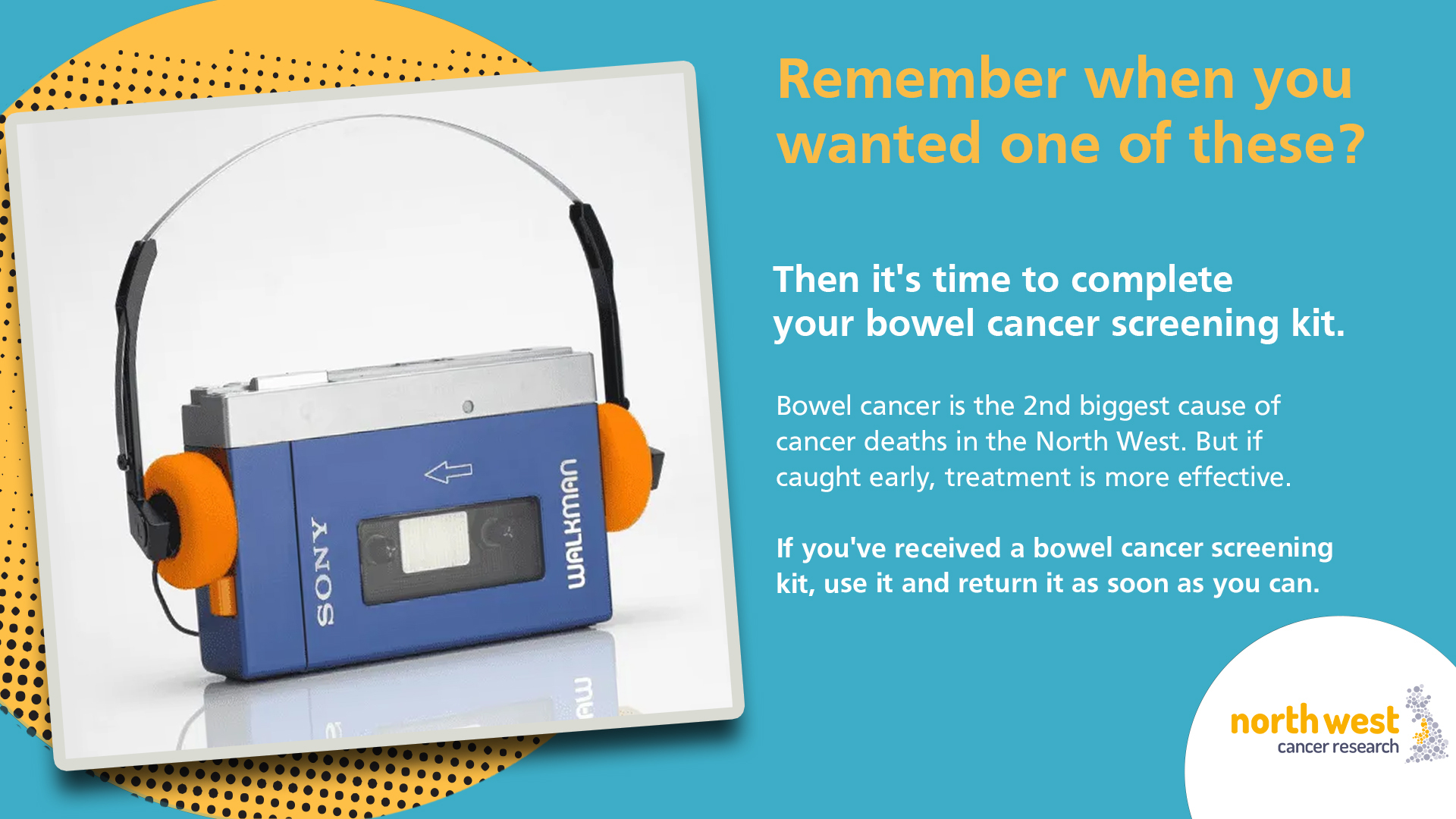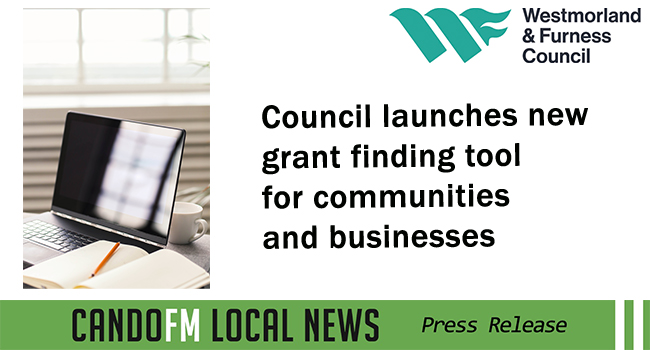The Walkman and a Chopper bike were staples of growing up in the 60s and 70s… and now, part of a rallying call to help save lives with a new campaign from North West Cancer Research.
Launched today (Wednesday 28 February), Remember when… encourages people to complete and return their home bowel cancer screening kits to help catch signs of the disease early.
The campaign shines a spotlight on bowel cancer as the North West’s second biggest cause of cancer deaths, according to latest data, and urges people to look out for their kit when it arrives and to be aware of bowel cancer symptoms.
In England, everyone aged 54 to 74 years old who is registered with a GP is automatically sent a faecal immunochemical test (FIT) every two years. Individuals use the kit to collect a small sample of poo and send it back to a lab to test for signs of cancer.
The programme is gradually expanding so that those aged 50 to 53 will also be eligible for screening.
However, North West data shows that around a third of eligible people across the region did not return their test kits in 2022/23, with just 66.5% of people aged 60 to 74 years old sending their tests back.
Now, North West Cancer Research is hoping to change this trend through a nostalgia-driven campaign, telling people that if they can remember owning a Walkman or longing for the iconic chopper bike for example, then it could be time to complete their bowel cancer screening kit.
Among those supporting the initiative is ex-Everton and Republic of Ireland footballer Kevin Sheedy, who was diagnosed with bowel cancer aged 52. The former midfielder finished treatment five years ago and is passionate about raising awareness.
Kevin, 64, said: “I started noticing some symptoms such as blood in my poo and going to the toilet more than usual, so I knew I needed to get it checked. My initial tests came back all fine, but my GP sent me for further tests to rule things out. However the results showed that there was a tumour and I needed an operation.
“Being told it was cancer was still a massive shock – you never think you’ll hear that word being directed at yourself so it’s a lot to take in. I was one of the lucky ones and didn’t need chemotherapy or a colostomy bag. That’s why early detection is so important and why I would urge anyone who is eligible to do their test to do so and send it back straightaway – it could well save your life.”
Across the North West, bowel cancer rates are 5% higher than the rest of the country.
While screening can detect early signs of the disease, experts warn to still look out for key symptoms including: persistent blood in poo; a persistent change in going to the toilet such as having to go more or poo becoming runnier; and lower abdominal pain or discomfort.
Dale Vimalachandran, consultant colorectal surgeon at the Countess of Chester, said: “There’s no doubt that early detection of any cancer leads to better outcomes, and this is especially true for bowel cancer.
“A bowel cancer screening kit is easy and hygienic to use and, while some people may feel hesitant about doing it to begin with, it has the potential to save your life. Being aware of the signs and symptoms is vital and it’s important to know what’s normal for you and your body.
“Seeing your GP when you notice something that doesn’t seem quite right really can make a huge difference.”
As a whole, rates of cancer in the North West are 25% higher than the rest of England. North West Cancer Research funds projects that aim to reduce such inequalities through tackling the cause, improving the care and finding the cure for cancer.
Alastair Richards, CEO at North West Cancer Research, said: “Rates of cancer, including bowel cancer, are higher than the national average. This is for a number of reasons, including population demographics and the deprivation we see in many parts of the region. While our research aims to close this inequality gap, there are steps that individuals can take to catch signs of bowel cancer and receive treatment early.
“We know that people may not complete their test because they are perhaps fearful of the results or maybe feel squeamish about doing the test itself, but we want to change that with our campaign.
“By reminding people that they may in fact be old enough to now complete their test, we’re hopeful that we can increase the uptake in home screening across the North West and, ultimately, reduce the number of people being diagnosed.”
For further information about Remember when… including signs and symptoms, visit: www.nwcr.org/rememberwhen








